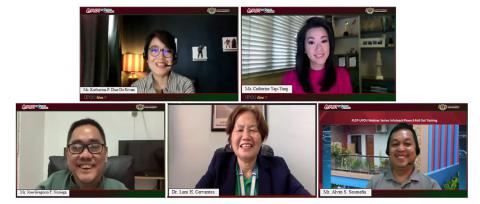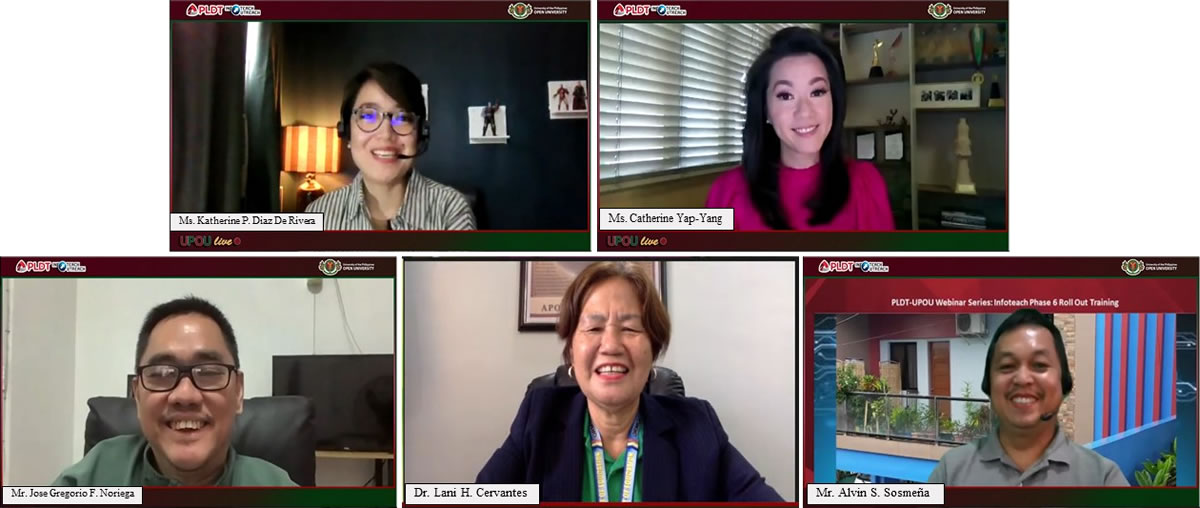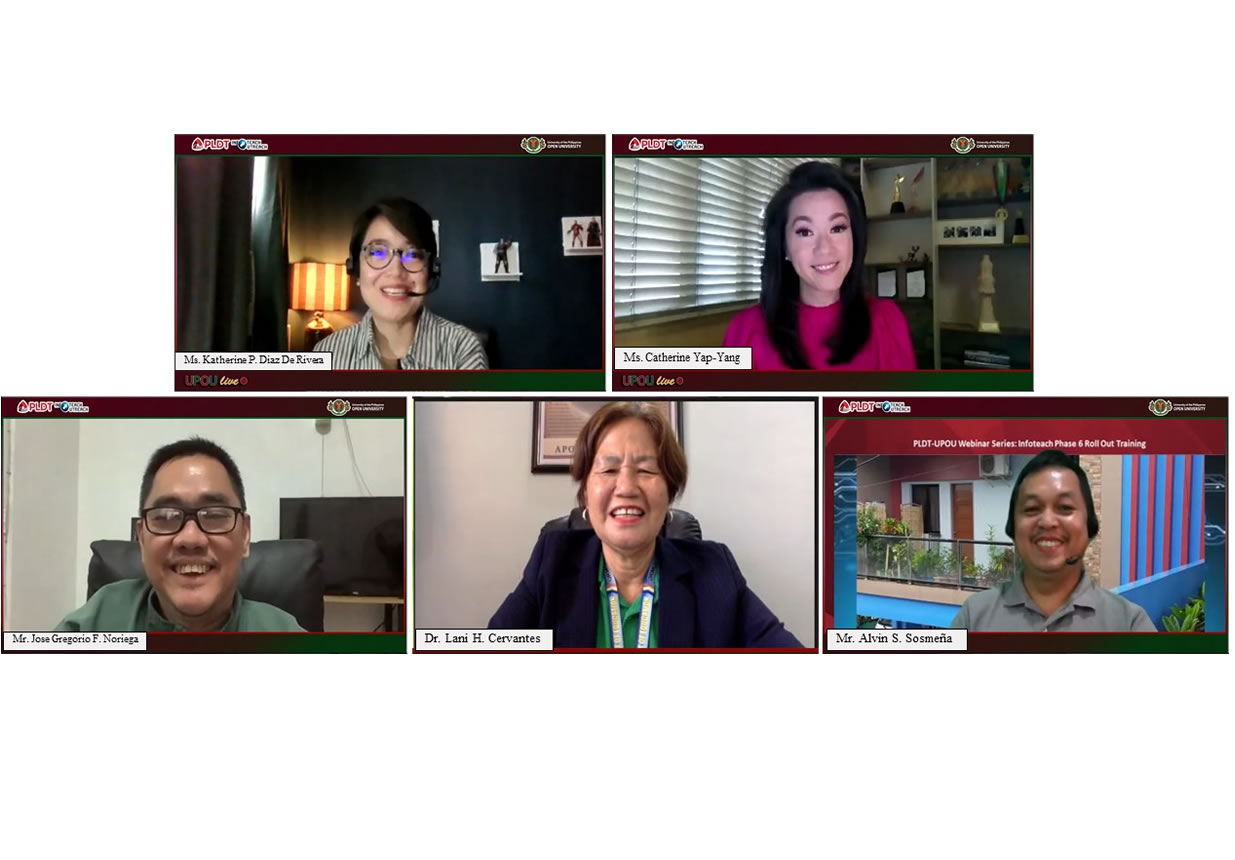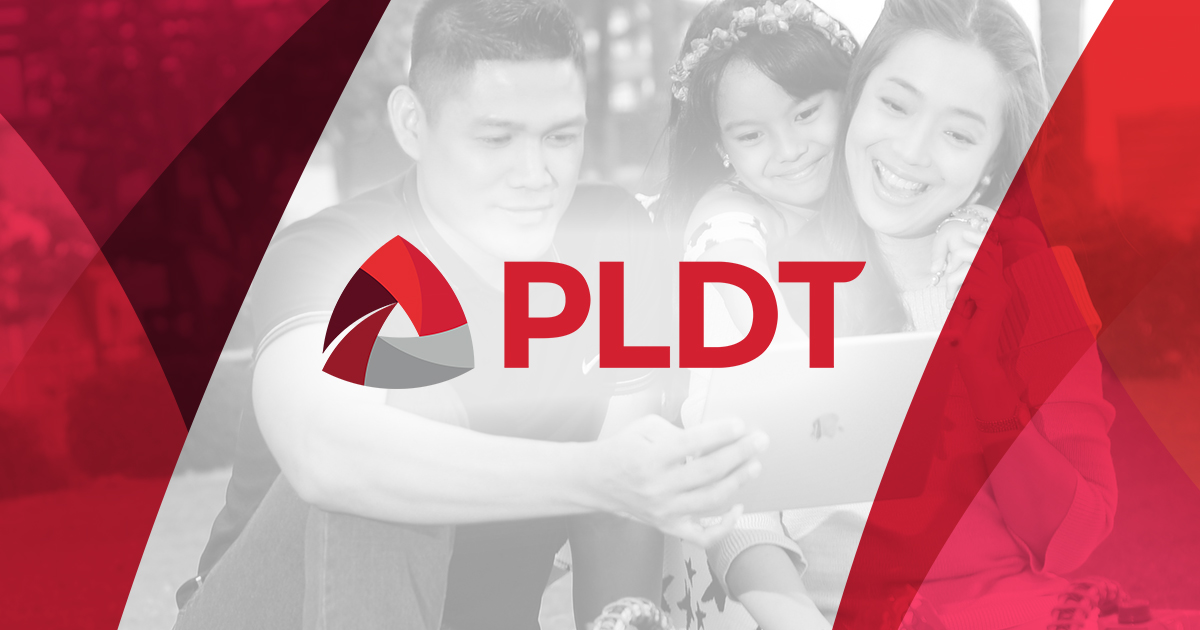

As digital connectivity becomes a key enabler of their continued learning in the new normal, PLDT and the University of the Philippines Open University (UPOU) team up to empower Filipino teens to be responsible users of social media.
Be your authentic self and be your own moral compass when you go online, speakers agree in unison in the recent webinar attended by over 1,400 high school students from public schools across the Philippines.
The collective reflection had been surfaced at the Infoteach Outreach Digital Literacy Series on “Responsible Use of Social Media”. The webinar comes just as the mounting din in the social media sphere is challenging the youth’s fruitful engagement on their social media pages.
Providing guidance to teachers in the audience, guest panelist Dr. Lani H. Cervantes, OIC, Schools Division Superintendent, Department of Education (DepEd) Division of Ormoc City, remarked: “Social media platforms such as FaceBook, Instagram, Twitter, among others, must be used with utmost care and caution to make them more relevant to the curriculum. It requires a balanced decision whether or not to post or upload something. It requires a broad perspective to regulate what we share or promote and what we comment on or give feedback.
She adds, “If the target is to help our learners, we cannot just provide them with inconsistencies or inaccuracies. As much as possible, we need to provide a wholesome virtual platform with greater opportunities in education. Let us never forget that our learners are the heart of the curriculum. When our physical or virtual activities fail, then our learners will also fail. To prevent such failure, one needs to identify in the virtually posted materials those that are worth learning and those that are not. The standards should begin within us.”
On the same panel, PLDT First Vice President and Head of Corporate Communications Cathy L. Yap-Yang, pointed out that the COVID-19 disruption has brought more people online longer, to the near exclusion of what goes on offline than at anytime in our lives. “There is really no escape from social media or shall I say social media cannot escape our teens.”
Yang said teens can become part of the solution to the problem of social media being weaponized by some sectors in the online community. With their varied points of view, beliefs, and principles, the youth should take the opportunity to be heard.
“Why is it important to be the authentic you? It’s because you need to be your own moral compass, when you go out there and engage online. You and I would agree, it would be better to make your voice count. Your rules, your way.”
On personal brand, she advised the students: “Your personal brand is how you promote yourself. It is the unique combination of skills, experience, and personality that you want the world to see you. It is the telling of your story, and how it reflects your conduct, behavior, spoken and unspoken words and attitudes.”
To become successful in establishing a personal brand, proper management of social media accounts is very important. This can be made possible by heeding the tips given by resource speaker Alvin Sosmena, Division Information Technology Officer, Schools Division Office, Ormoc City. Following are some of the principles:
• Think about your privacy, but remember, ‘private’ settings don’t prevent content from being downloaded.
• How your use of social media makes you appear to others – What will your strategy be? You may want to: 1. Think about what you want your social media use to say about you; 2. Consider what you want to achieve, and which tools would be best for the job; 3. Keep your personal and professional identities separate; 4. Check security settings regularly; 5. Communicate positively, not negatively; 6. Choose quality over quantity; 7. Google yourself regularly; 8. Untag yourself from photos or posts that could show you in a negative way.
• Make sure not to do any of the following: 1. Don’t use social media to complain or vent frustrations; 2. Don’t share personal pictures or information that will reflect badly on you; 3. Don’t announce when you’re on holiday (and leaving your home empty); 4. Don’t express concerns about others, even if you think you are anonymous; 5. Don’t connect with people you don’t personally know, or at least without any purpose for the connection; 6. Don’t forget to log out on shared machines/devices.
According to Yang, “Social media is not a purely negative or positive force. It all depends on how you use it. If you want it to hold a positive, or at least a neutral place in your life, it’s on you to take measures to use social media responsibly.”
Program moderator Jesus Gregorio F. Noriega, PLDT Head of Employee Development, said of the session, “It’s been very enriching. We learned a lot from each other today. Let us look forward to Fridays for this Infoteach Outreach Program webinar series.”
“Social media is really close to people’s hearts, especially the students,” observed PLDT Community Relations Head Katherine P. Diaz De Rivera whose team organizes the online series, together with UPOU. “This 6th session of the digital literacy series really engaged the attendees. They asked a lot of questions, we had to extend the session by another hour which was still not enough. It was a very interesting and exciting learning experience for all of us who attended this webinar, especially the students who took part and experienced it. We are hoping for them to take advantage of these opportunities, imbibe the learnings, and encourage their classmates, as well, to join the next sessions,” she said.
The PLDT-UPOU Infoteach Outreach Digital Literacy Series carries until May. It is held every Friday, 10-11:30am, from March 5 to May 21.


